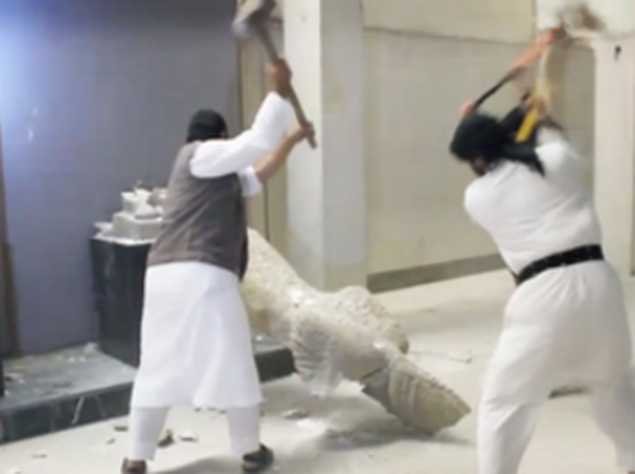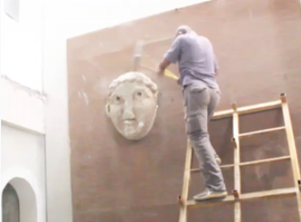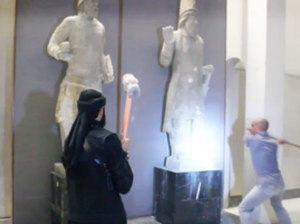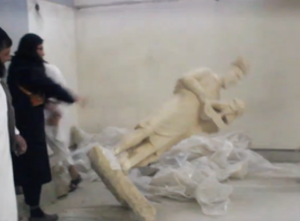The targeted site, unsurprisingly, was the central library of Mosul; a trove of knowledge replete with historically rich sources - of import to not only Iraq alone but the Arab world at large. Reports on Sunday stated that rare manuscripts had been both ransacked and torched, at the hands of the Islamic State group. With that said, the reported figures of missing items range anywhere between eight to one hundred thousand.
However important or large the scale of the latest episode of cultural plundering, little remains said about the vanished contents of the museum, alluding perhaps to the idea that either the continuing destruction of historical antiquities was dramatically underestimated, or willfully ignored by Iraqi authorities.
While many have been quick to label the latest degradation of Iraqi heritage by the Islamic State group, as a new wave of sociocide (the physical destruction of a peoples culture) - one needn't look further aback than last year to learn that Sunday marked the continued destruction of Iraq's collective memory. The history of the items burned and looted isn't merely a fact of the past, their history remains seen by countless Iraqis as a decisive fact of their life and existence.
Among the items reported missing are ancient manuscripts, maps (stretching as far back as the Ottoman reign in Iraq), and newspapers published during the same milieu. But the scale of ruination has stimulated disputes which have spread widely across social networking sites. The political economy of the art of ISIS's destruction seems to not be confined only to acts of urbacide. The political economy itself is firmly anchored within sites such as twitter, where images and videos of IS fighters armed with pickaxes and sledge hammers are seen to be destroying statues dating back to Iraq's Babylonian civilisation. Local sources have alleged that some of the statues destroyed in the past week were not authentic relics but replicas, but the winged bulls however are believed to be the real deal.
This latest spree of culturecide in Iraq, exemplifies a systematic campaign to erase the memory of past, so as to forge a new history in support of the self-projected image of the self-styled Islamic state group, or caliphate, as they would like to be known in the eyes of the world





 RSS Feed
RSS Feed